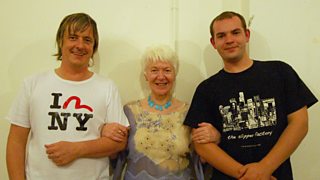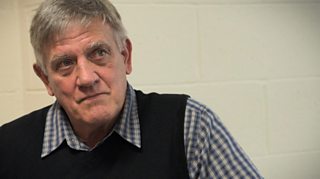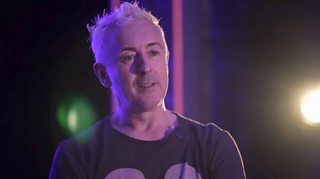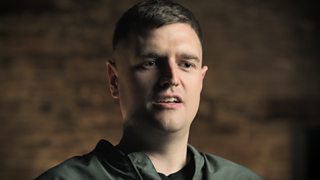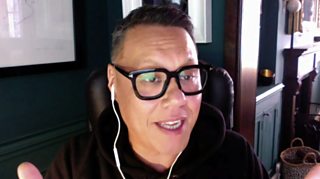Why do people think politicians are dishonest?
People enter politics with good intentions says a former MSP, but compromise and public perception of their duties can lead to accusations of dishonesty.
"From my experience across all political parties, the vast majority of politicians are honest, decent people," according to Kezia Dugdale, a former MSP and leader of the Scottish Labour Party.
"People from all walks of life are [...] putting themselves at the forefront of their communities and saying, ‘Back me to make our lives, our community, the country a better place’. That’s a pretty noble thing to do."
But members of the public can often have a problem putting their faith in politicians, questioning their trustworthiness and doubting whether promises made are likely to be upheld.
The issue is explored on Life Cycle, in an episode examining honesty, from the impact it can have on mental health to the question of whether it is always the best policy to tell the truth.
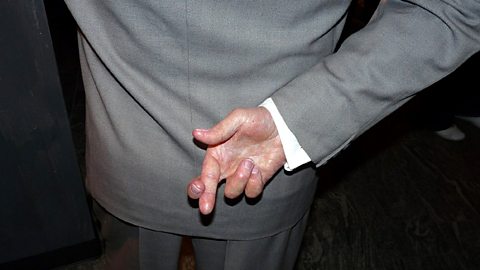
Do politicians have a problem with honesty?
Kezia Dugdale reveals how confusion around roles can lead to accusations of dishonesty.
The truth is something politicians are accused of not being familiar with, but Dugdale feels this is unfair.
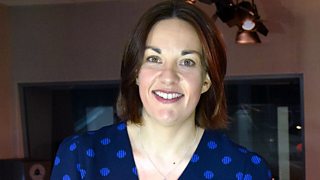
She cites a survey which asked both politicians and the public what they thought the role of politicians was.
"About 80% of politicians said, 'We’re here to apply our judgement in the best interest of the people we represent," says Dugdale. "63% of the public said “We send our politicians to represent what we think'".
“So already you’ve got that big gap between what politicians think they’re there to do and what the public think they’re there to do.
She says that further problems occur when politicians enter parliament and realise the difficulties of keeping election promises.
"Whether that’s having the numbers to vote your ideas through or whether it’s suddenly discovering the thing that you said would cost £10m actually costs £100m.
"If you’re going to keep that promise it means you’ve got to break another one over here, or you’ve got to find another 90 million quid and that means putting taxes up [and] you said you wouldn’t put taxes up.
"That’s where the questions around honesty start to get more difficult."
On ΒιΆΉΤΌΕΔ Sounds
-
![]()
Life Cycle
Kezia Dugdale, Bruce Morton and Lily Asch help endurance athlete Lee Craigie cycle her way to a better understanding of the value of honesty.
Latest features from ΒιΆΉΤΌΕΔ Scotland
-
![]()
'Wild swimming helps me process the grief of losing my son'
The benefits of cold water therapy.
-
![]()
Winter adventures are appealing, but an expert advises caution
Trips in winter require particular knowledge and skills.
-
![]()
The rescuers: Why volunteers risk their lives in mountain emergencies
Landward meets members of the Cairngorm Mountain Rescue Team.
-
![]()
βLook for the lightβ β practical tips to help you through another winter with SAD
Useful advice and tips to combat low moods at this time of year.
-
![]()
How you could be a binge drinker without even knowing
Binge drinking is classed as fewer units than many people may realise.
-
![]()
How chocolate biscuits and drama classes helped one man leave prison behind
The healing power of creativity.
-
![]()
'When people believe in you, itβs life-changing'
Author Graeme Armstrong revisits the man who helped turn his life around.
-
![]()
The 'breath-taking' display of US birds swept on to British soil
Recent storms have brought rare birds to our shores.
-
![]()
Six things we learned about Alan Cumming on Take the Floor (Spoiler: includes accordions)
The actor spoke to Take the Floor's Gary Innes.
-
![]()
How street gangs trap young men in a dangerous cycle of violence
The almost inescapable pull of life in a gang.
-
![]()
Why stylist Gok Wan believes there's no such thing as bad fashion
The fashion expert says we should stop following rules and do what feels right.
-
![]()
Is sending a CV still the right way to apply for a job?
They've been central to job applications for years, but are they worth it?






